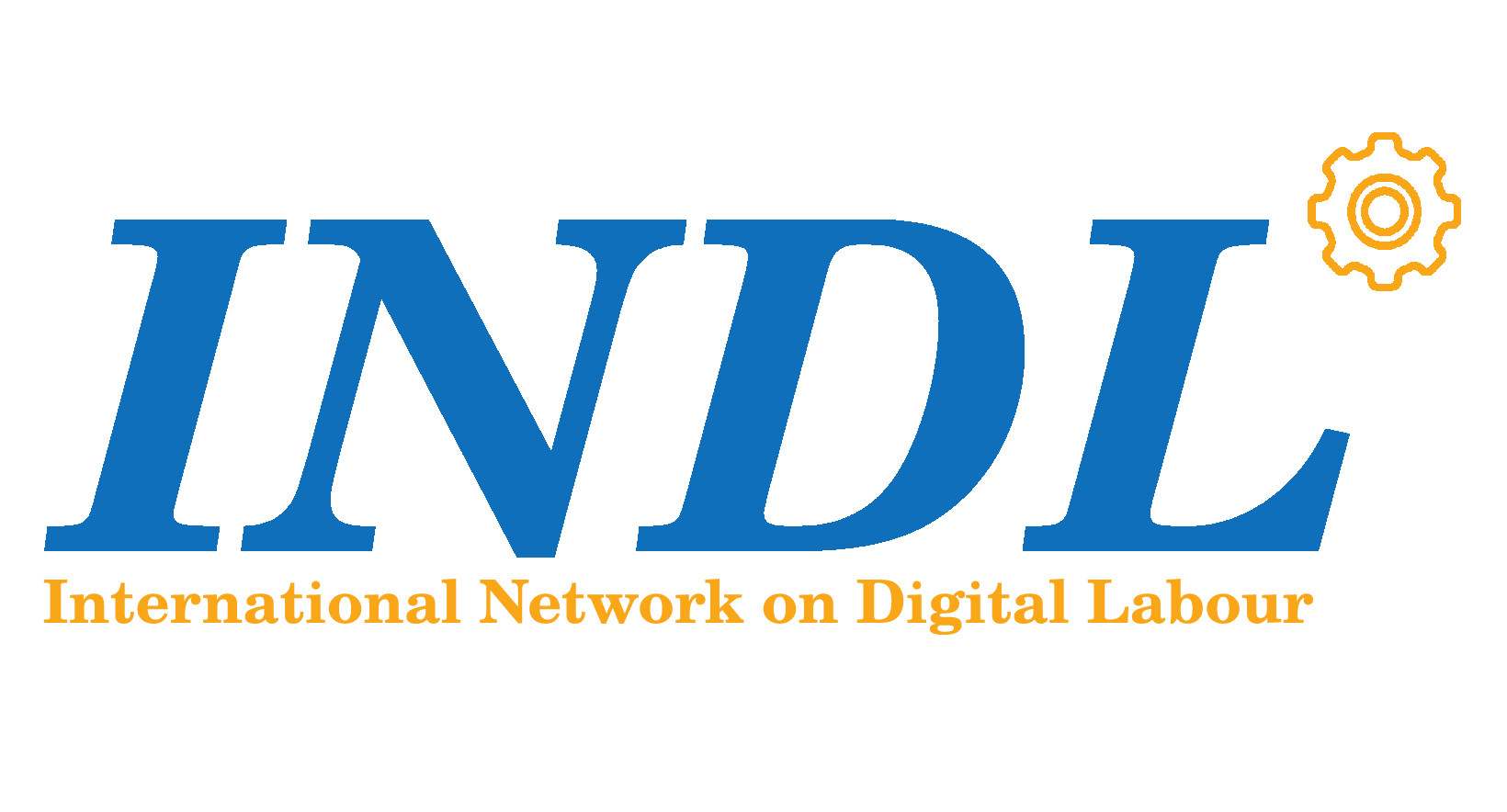The second meeting of the Middle East and Africa chapter of the International Network on Digital Labor for the (INDL-MEA 2) wrapped up successfully after two days of intensive online discussions. Held November 25-26, 2025, the event brought together researchers from several countries to examine the rapidly evolving landscape of digital work across the region.
Organized by INDL, Université d’Angers, and The American University in Cairo’s Access to Knowledge for Development Center (A2K4D), in partnership with the International Labour Organization (ILO) and the Digital Platform Labor (DiPLab) research program, the conference has established itself as the key regional forum for digital labor research.
The MEA region faces distinct challenges in the digital economy—from algorithmic management and labor informality to questions of regulation and worker rights. INDL-MEA 2 tackled these issues head-on, exploring how platformization is reshaping work and livelihoods across diverse contexts.
Day One: Power, Precarity, and Regulation
Following opening remarks from organizers Sarrah Kassem, Myriam Raymond, Nagla Rizk, and Antonio Casilli, the first session examined the political economy of digital labor. Chaired by Søren Bøgh Sørensen, presentations exposed troubling practices in troll farming and electronic committees in the Middle East, analyzed disinformation production by Iranian “digital soldiers”, and compared platform work precarity across Bangladesh and the MEA region. Geoffrey Ochieng’s research on Kenyan ride-hailing platforms illustrated how algorithmic management intensifies worker vulnerability.
A special midday session, facilitated by Dr. Myriam Raymond presented a preview of an upcoming DiPLab study on data work in Egypt—shedding light on workers who label, annotate, and clean data to train AI systems. The afternoon turned to regulatory challenges, with a session chaired by workers’ advocate Kauna Malgwi. Its presentations addressed policy gaps in Turkey, philosophical frameworks for algorithmic governance, AI regulation in Gulf countries, and policy convergence across African nations.
Day Two: Workers’ Voices and New Frameworks
Day two opened with Ephantus Kanyugi from Kenya’s Data Labelers Association, in conversation with Adio Dinika, discussing efforts to build ethical AI systems grounded in workers’ experiences. The first session, chaired by Manovosoa Rakotovao, examined AI’s impact on labor markets in Egypt and Saudi Arabia, ChatGPT’s effects on professional work in Morocco, and the tension between flexibility and precarity facing Moroccan platform drivers. Judith Gbagidi’s presentation connected digital labor questions to broader debates about democracy and feminist futures in Africa.
Two keynote sessions closed the conference. Prof. Sharath Srinivasan from Cambridge challenged Western-centric conceptions of AI, drawing on Eastern African perspectives to reframe how we understand these technologies. Finally, Nagla Rizk presented research from the MENA Observatory on women, AI, and work, highlighting gender dimensions of digital labor transformations.
Building Momentum
INDL-MEA 2 succeeded in bringing together diverse voices—established scholars, early-career researchers, worker advocates, and policymakers—to grapple with urgent questions about digital labor. The presentations revealed consistent themes: widespread worker precarity, gaps in regulatory protection, the need to center marginalized voices, and the importance of developing context-specific approaches rather than importing Western models.
Digital labor continues transforming economies across the Middle East and Africa. The research and connections fostered through this conference will prove increasingly valuable in shaping equitable policies and practices. Following a successful inaugural conference in 2024, this second edition confirms INDL-MEA’s role as an essential platform for regional dialogue.
